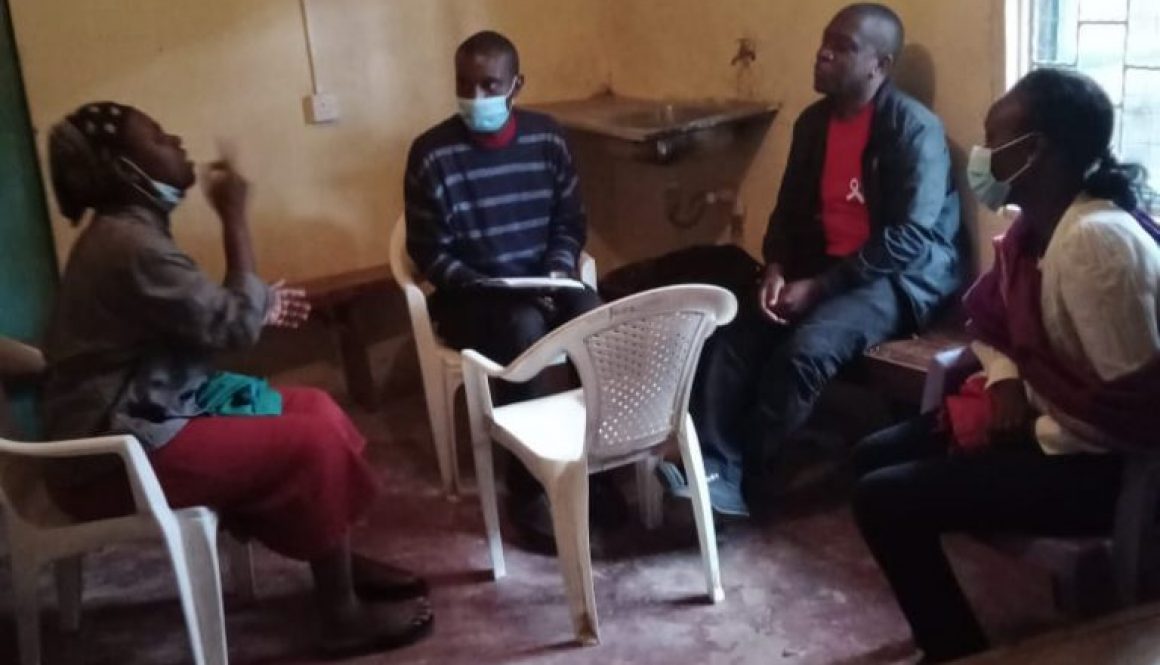Community entry in Nairobi
In the final blog in this series, our ARISE co-researchers in Nairobi – John Mutinda, Lydia Akwabi, Judith Achieng, Famuel Omwaka, Daniel Obiero, and Joel Mburu – explain how they worked with participants to create and analyse governance diaries, undertaken. This blog was supported by Caroline Kabaria, Ivy Chumo and Blessing Mberu.
On our first day with the study participants we were all very eager to meet for introductions and initial group interactions. After mock interviews and de-briefing held at our offices, we agreed that we would go to the Korogocho study site first and attend the Viwandani study site the following day. Community mobilizers, who we worked with during the community profiling, social mapping and ground-truthing fieldwork exercises, were our first point of contact at the site on arrival. The community mobilizer had already contacted and organized the participants when we arrived. Participants were given face masks and safely seated observing social distancing of 1.5m, observing COVID-19 safety measures.
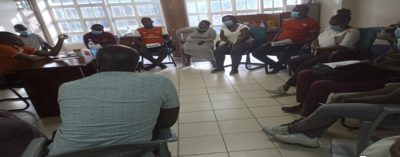 To begin, my colleagues and I introduced ourselves and briefly explained the objectives of why we were all there, including the nature of our study. Introductions and brief comments from the participants followed. The first to speak was a differently abled woman who introduced herself and asked about how this exercise might benefit as participants. She pointed out that many organizations have collected data from them, but without any feedback. She stated:
To begin, my colleagues and I introduced ourselves and briefly explained the objectives of why we were all there, including the nature of our study. Introductions and brief comments from the participants followed. The first to speak was a differently abled woman who introduced herself and asked about how this exercise might benefit as participants. She pointed out that many organizations have collected data from them, but without any feedback. She stated:
“Every time people from organisations come to gather data from us, then they disappear and we still see no significant changes in our community; it is as if they just use us to gather information. I want to know how I am going to benefit as a participant in this research”.
As a team we re-emphasized to the whole group that research was changing from a traditional approach to a community-based participatory approach. The participants appreciated our explanation. Participants continued with introductions, appreciations, comments, opinions, suggestions and recommendations. Even though their availability for participation was voluntary, some differently abled individuals are normally hidden from the public by their family members, some are abandoned and destitute while others personally prefer not to be exposed to the public or even to field researches because of their marginalized and vulnerable circumstances. Others are visible on the main streets of Nairobi city center as beggars. From the introductions and comments of the participants, we saw this project as a brilliant platform for the voice of community concerns. We felt good when they expressed willingness to participate in the study and they welcomed us to their homes in advance and assured us of their co-operation. By the end of our meeting, their faces lit up as they began to understand that they are people of interest who could help transform our communities – from the traditional approaches of data collection in conducting research, to the methodologies of the CBPR.
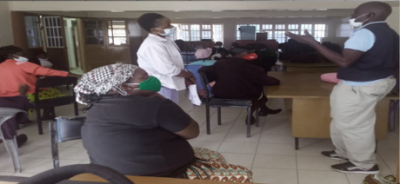
The first speaker’s comments had left us with questions. What are the realistic logistics and dynamics that must change in our country to ensure equity in representation? This was an opportunity to hear from the speaker what she thinks can be done to ensure inclusivity, in the context of the nation’s current non-disability friendly topography. As co-researchers, we noted that the way to close this marginalization gap is by seeking solutions from marginalized community members, because they “know where their shoe pinches the most”. The field data collection began soon and the respondents were very receptive, cooperative and welcoming as they had assured us they would be.
Infrastructure seems to be advancing in slow motion in Korogocho and Viwandani, looking at the roads, public hospitals and schools. But on keener observation, one notes an implosion of human energy at a deeper level, a consequence of the need generated by rural-urban migration to more cosmopolitan counties like Nairobi. We recorded that as people’s knowledge is advancing, attitudes are transforming. For instance, from the respondents we learn that there are parents’ seminars on child health and rights, adolescent girls and young women have safe spaces and there are NGOs targeting 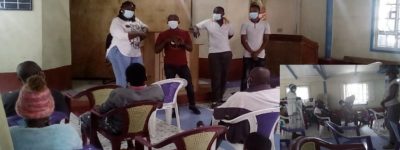 boys’ and girls’ talents. PLWDs have meetings and seminars on/with business start-ups. There are parents’ and young mothers’ seminars on small business enterprises income-generating activities. While young ladies are eager to attend seminars, young men are sometimes challenged by economic challenges and scarcity of resources that make them feel entitled to benefits for attendance and participation. There is a regular government facilitated seminar taking place at the community hall in the Chief’s camp to sensitize the community on COVID-19 safety measures, and other health matters. These basic amenities have developed because of collaboration between informal and the formal structures. For example, public toilets are built by community groups who approach NGOs with proposals and request financial contribution while the community group contributes human and material resources.
boys’ and girls’ talents. PLWDs have meetings and seminars on/with business start-ups. There are parents’ and young mothers’ seminars on small business enterprises income-generating activities. While young ladies are eager to attend seminars, young men are sometimes challenged by economic challenges and scarcity of resources that make them feel entitled to benefits for attendance and participation. There is a regular government facilitated seminar taking place at the community hall in the Chief’s camp to sensitize the community on COVID-19 safety measures, and other health matters. These basic amenities have developed because of collaboration between informal and the formal structures. For example, public toilets are built by community groups who approach NGOs with proposals and request financial contribution while the community group contributes human and material resources.
Community members often employ informal solutions first, before engaging with formal structures. Many people are not aware of whose responsibility it is officially and who is answerable formally for providing services. ARISE project has opened the community’s eyes as to who to ask for accountability. This was evident when during our data collection, there was a solid waste pile up in front of a school (St. Clair). Community members came together and went to complain to the Ward Manager, and a large green bin from Nairobi City Council was brought to the area so the people now throw their solid waste in it and it is collected bi-monthly by the city council’s lorry. What surprised one older man was that the community youths did not know that there is a Ward Manager’s office within the Chief’s camp and that such waste is part of his/her responsibility.
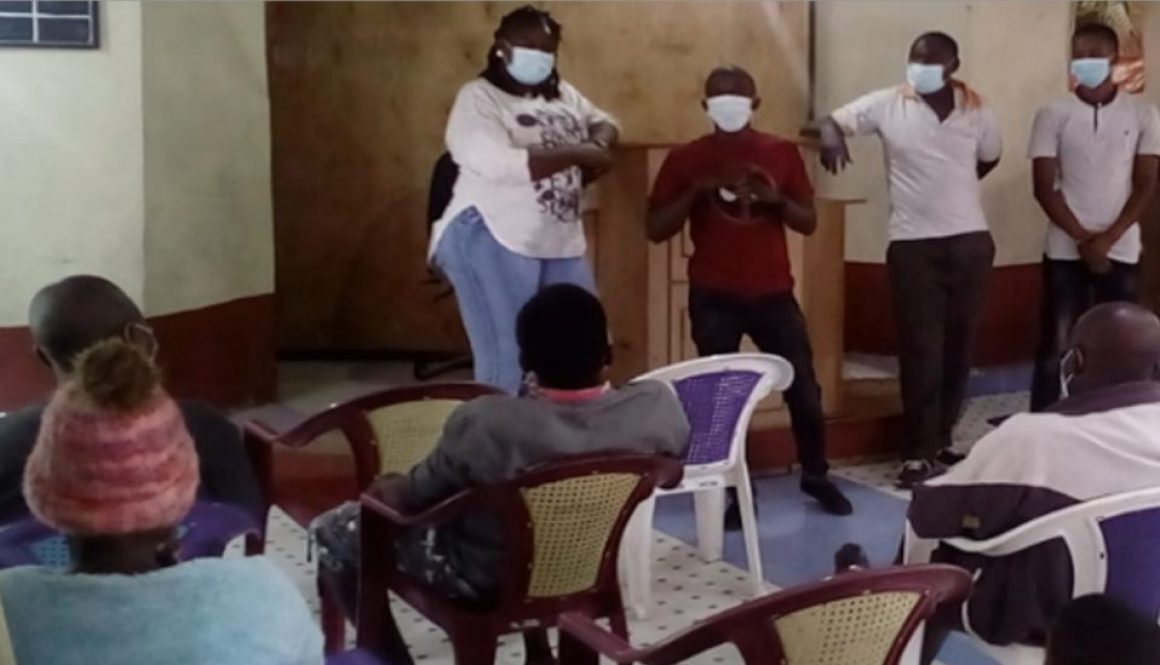
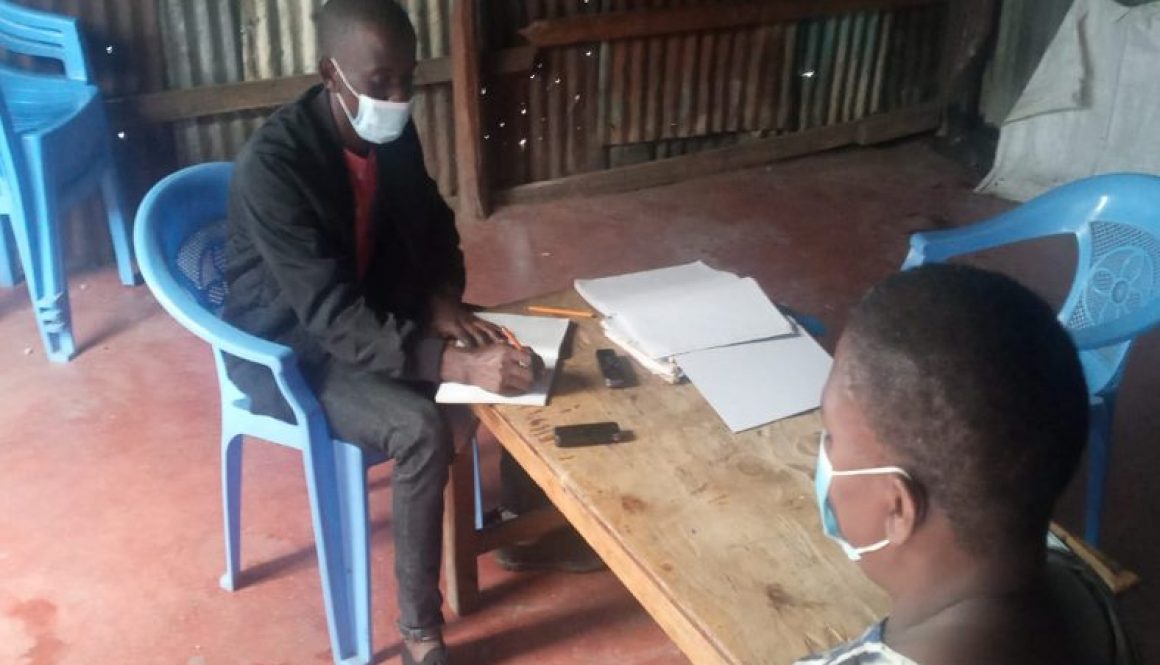
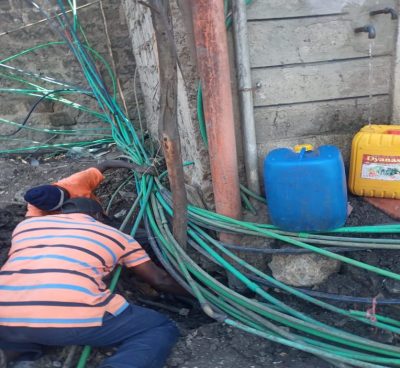
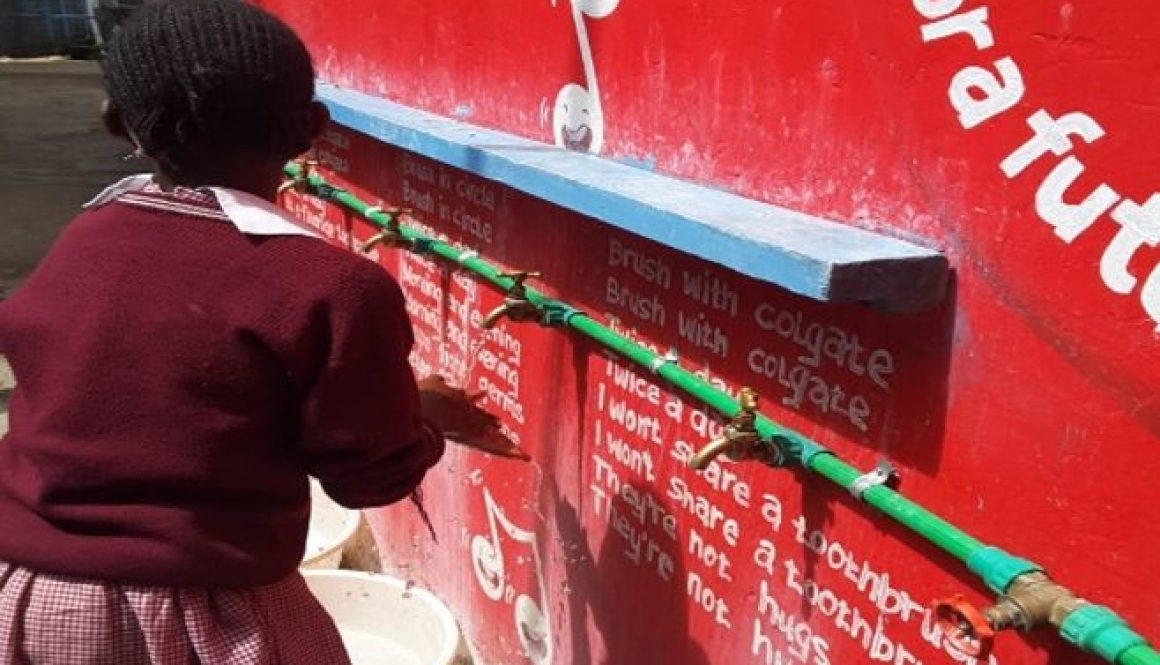
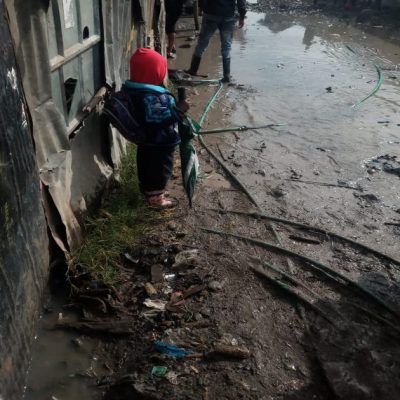
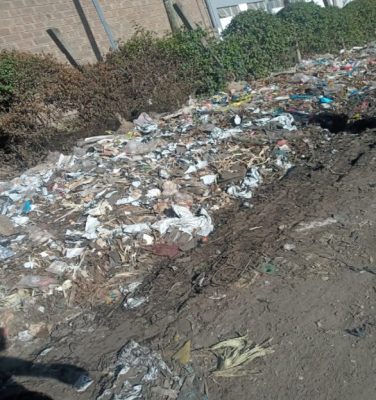
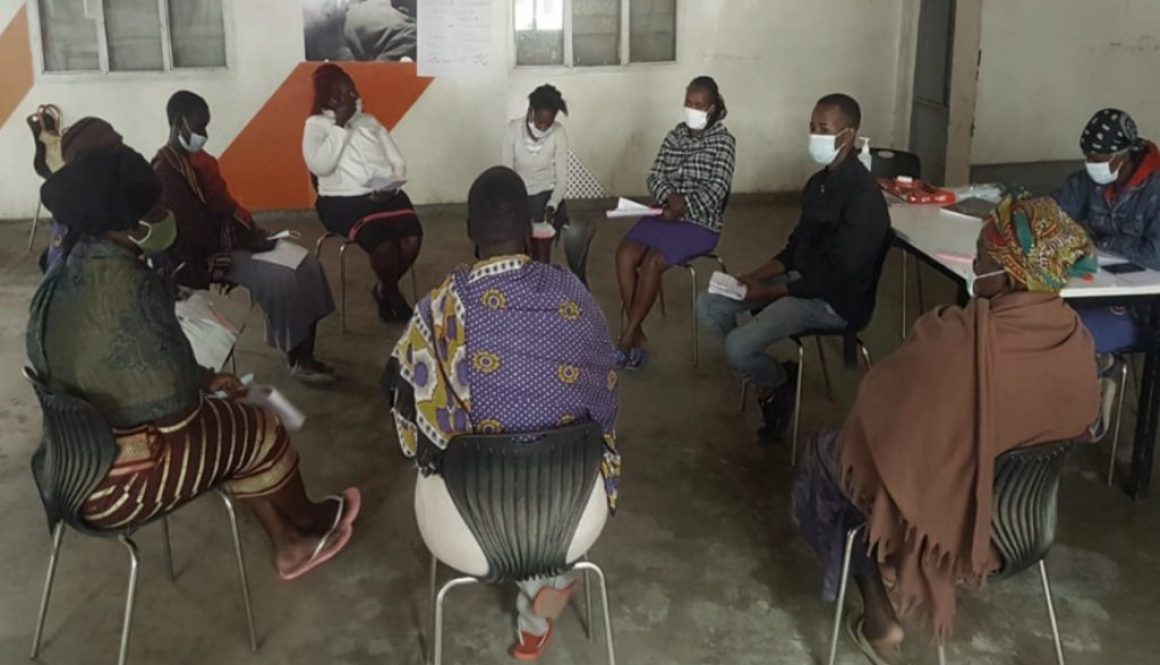
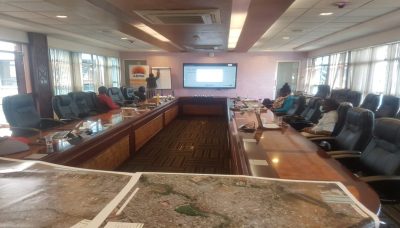
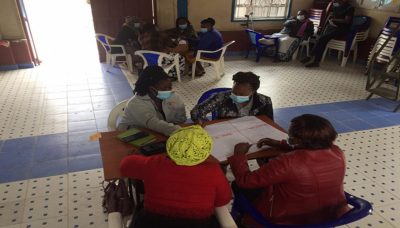
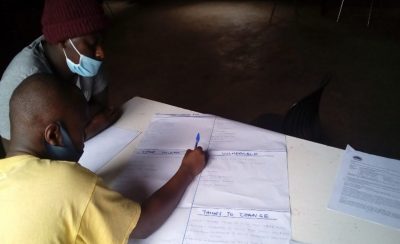 Every challenge has an opportunity for learning hence we learned a lot from these activities. We learned about social structures, influence, actors, power, marginalized and vulnerable groups in the community during social mapping. Having been raised in the communities, we understood how social structures and influence impacts community profiles mapped in earlier sessions. In addition, we learned how to conduct FGDs and the importance of mastering the content to avoid asking a wrong kind of questions, receiving incorrect responses, thereby compromising the quality of the data collected. Probing was also an important quality of a moderator, allowing them to collect as much information as possible. We learned that patience was a key skill for moderators and note takers, giving participants time to express themselves fully. Being part of this study was a privilege. We are confident that we are well-positioned to understand the community better and be a change to our communities.
Every challenge has an opportunity for learning hence we learned a lot from these activities. We learned about social structures, influence, actors, power, marginalized and vulnerable groups in the community during social mapping. Having been raised in the communities, we understood how social structures and influence impacts community profiles mapped in earlier sessions. In addition, we learned how to conduct FGDs and the importance of mastering the content to avoid asking a wrong kind of questions, receiving incorrect responses, thereby compromising the quality of the data collected. Probing was also an important quality of a moderator, allowing them to collect as much information as possible. We learned that patience was a key skill for moderators and note takers, giving participants time to express themselves fully. Being part of this study was a privilege. We are confident that we are well-positioned to understand the community better and be a change to our communities.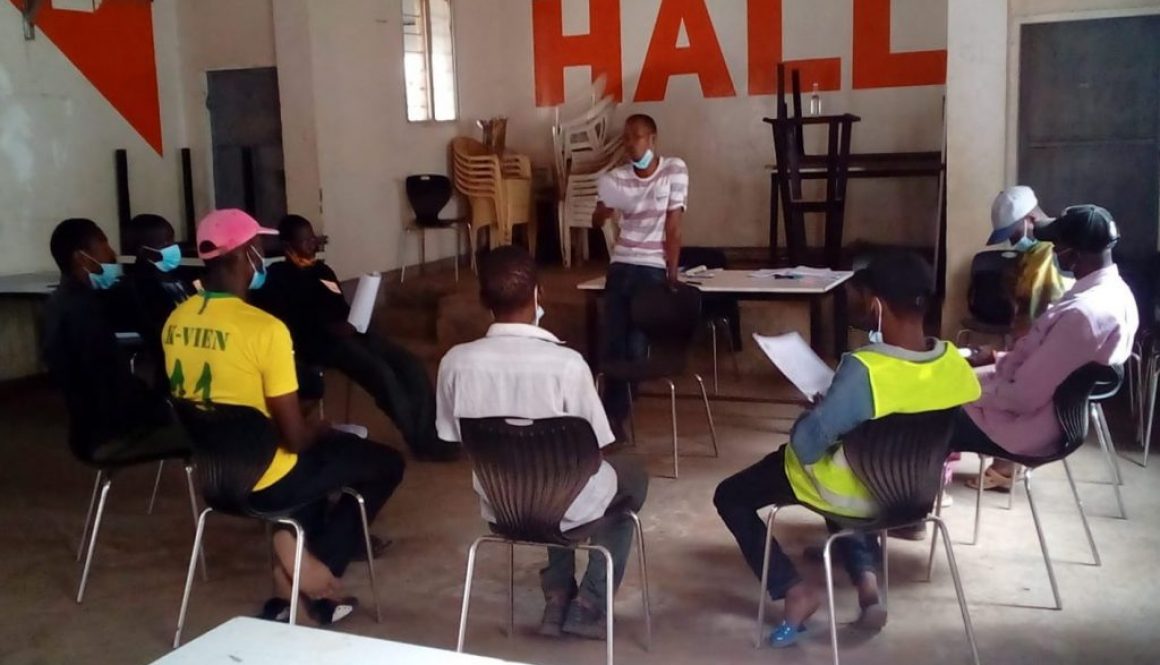
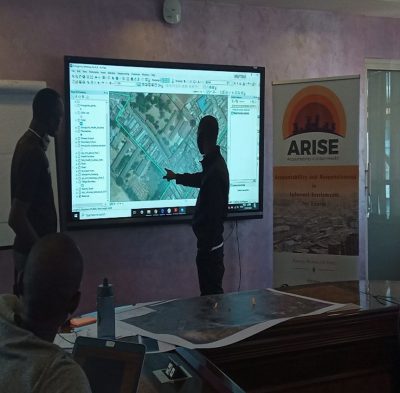

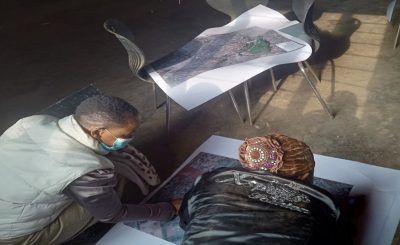
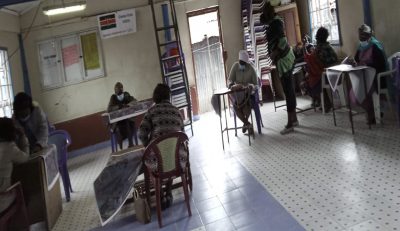 co-sharing. Researchers and the community also had trust in us as co researchers, and we were motivated and confident to give our best. We felt that the activity was of benefit to us, the community, and the researchers. Respondents had a common blanket of recommendations including improvement in public toilets, public primary and secondary schools, electricity, dumping sites, water, upgraded housing, public hospitals, security with street lighting, and improved police services.
co-sharing. Researchers and the community also had trust in us as co researchers, and we were motivated and confident to give our best. We felt that the activity was of benefit to us, the community, and the researchers. Respondents had a common blanket of recommendations including improvement in public toilets, public primary and secondary schools, electricity, dumping sites, water, upgraded housing, public hospitals, security with street lighting, and improved police services.
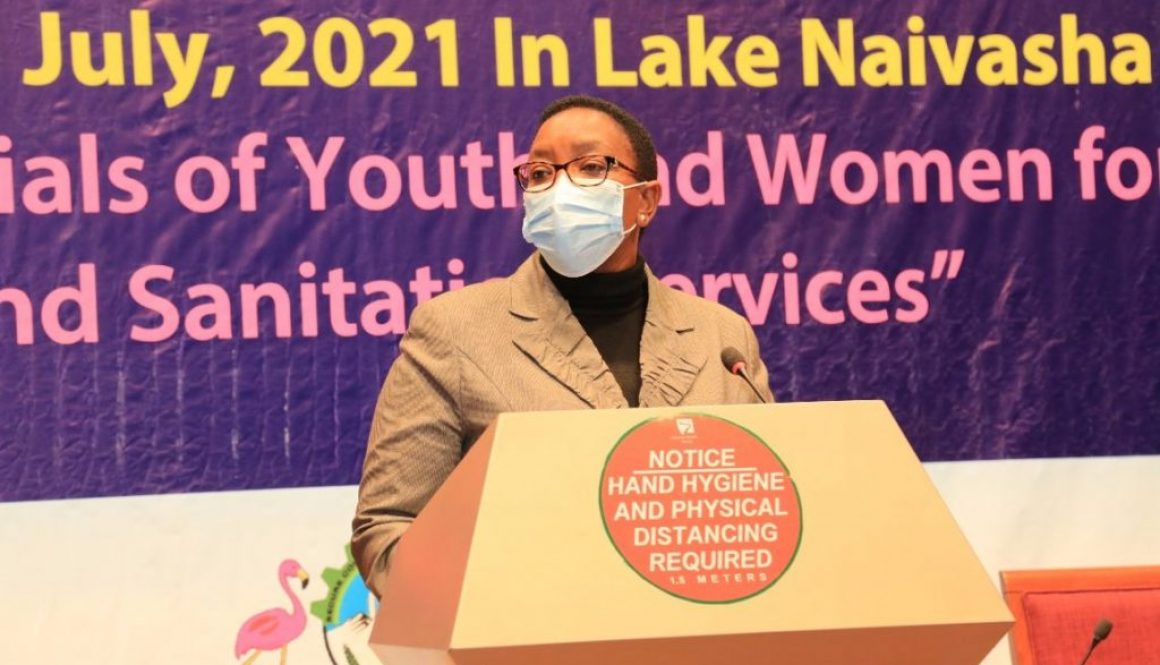
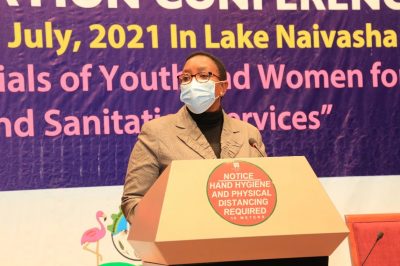
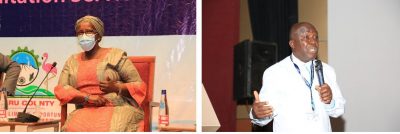
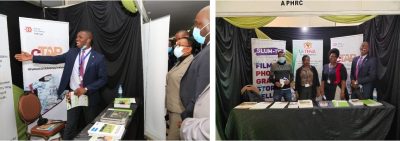

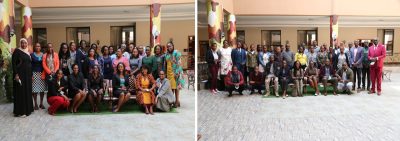
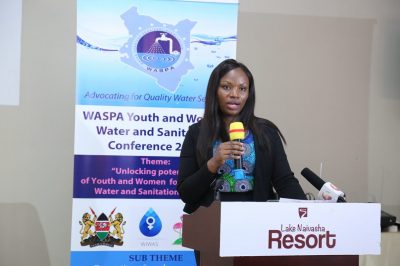
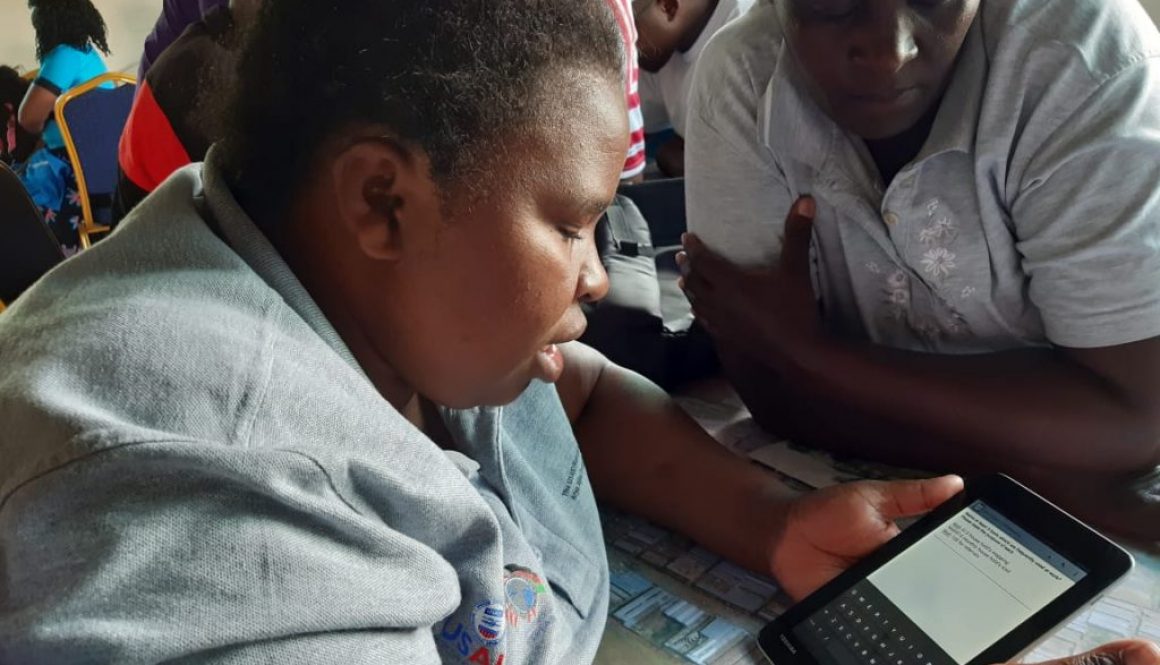
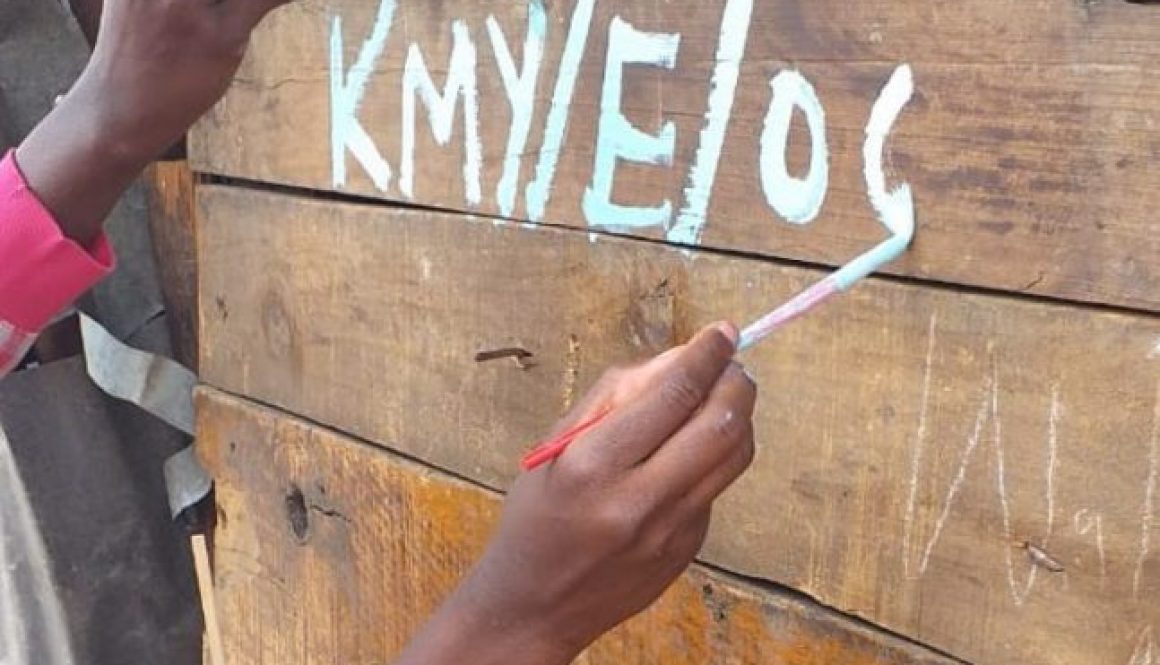
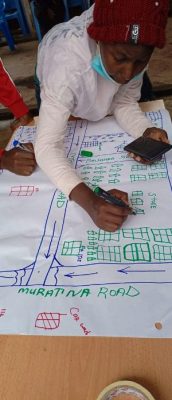
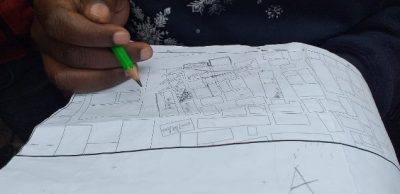 It also ensures that each structure is assigned a unique door number through a distinctive systematic method of numbering eg. KMY/A/001/A. The number comprises of the short-form name of the settlement, the cluster in which the household is located, the household number and, lastly, the number of rooms the household structure has.
It also ensures that each structure is assigned a unique door number through a distinctive systematic method of numbering eg. KMY/A/001/A. The number comprises of the short-form name of the settlement, the cluster in which the household is located, the household number and, lastly, the number of rooms the household structure has.